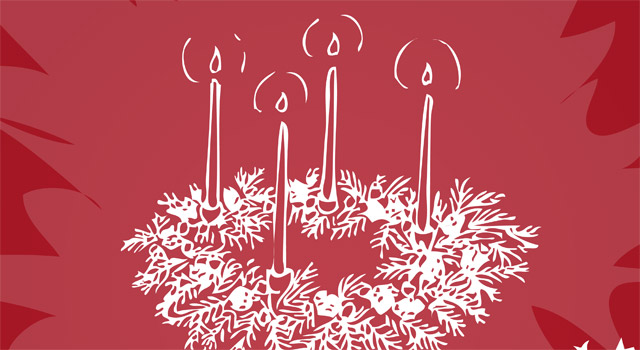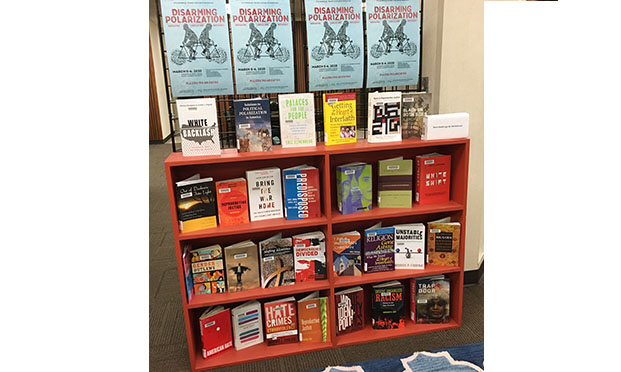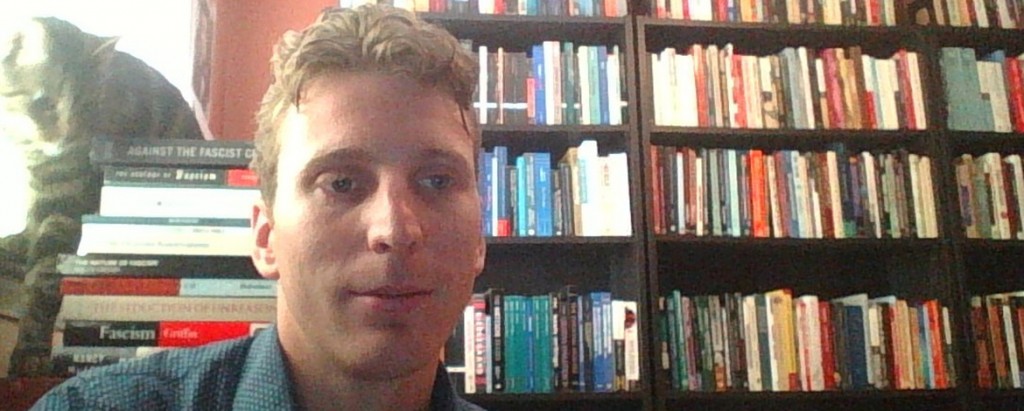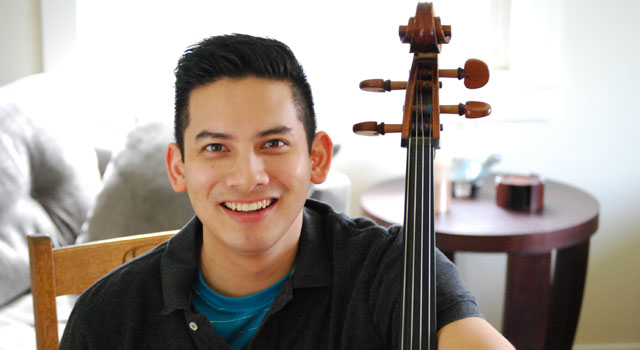Page 323 • (3,505 results in 0.023 seconds)
-
PLU profs and pastry professionals pack a presentation profoundly full of pickles Come learn the mysteries behind pickling and get a few free samples during Pickled from 6:30 to 7:30 p.m. Wednesday, May 9 in Rieke 103 (Leraas Hall) . The pickled plates to pick…
with free food, the presentation will include the opportunity to see an electric pickle. Read Previous Farewell Reception 2012 Read Next Athlete. Coach. Educator. COMMENTS*Note: All comments are moderated If the comments don't appear for you, you might have ad blocker enabled or are currently browsing in a "private" window. LATEST POSTS Caitlyn Babcock ’25 wins first place in 2024 Angela Meade Vocal Competition November 7, 2024 PLU professors Ann Auman and Bridget Haden share teaching and learning
-

German-language Advent service The Department of Languages and Literatures and Campus Ministry are sponsoring a German-language Advent service at 5 p.m. Dec. 5 in the Scandinavian Cultural Center. There will be a homily, readings and songs all in German with German text and English summaries…
be refreshments after the service. Read Previous Snow much fun Read Next Alum gives back to the community COMMENTS*Note: All comments are moderated If the comments don't appear for you, you might have ad blocker enabled or are currently browsing in a "private" window. LATEST POSTS Caitlyn Babcock ’25 wins first place in 2024 Angela Meade Vocal Competition November 7, 2024 PLU professors Ann Auman and Bridget Haden share teaching and learning experiences in China November 4, 2024 Lutes celebrate
-

Like many Lutes, PLU senior Cassie Paulsen’s summer hasn’t been exactly what she thought it would be. Cassie has spent her summer in an internship with Seattle Children’s Theater, but instead of moving to Seattle, she is acting, leading classes, and helping the theater any…
. Maria Chávez honored by American Political Science Association Latino Caucus Read Next President Belton discusses PLU “PLUS Year” with Dave Ross COMMENTS*Note: All comments are moderated If the comments don't appear for you, you might have ad blocker enabled or are currently browsing in a "private" window. LATEST POSTS Caitlyn Babcock ’25 wins first place in 2024 Angela Meade Vocal Competition November 7, 2024 PLU professors Ann Auman and Bridget Haden share teaching and learning experiences in
-

This exhibit, displayed in a living room setting in the Library lobby, is made up of reading materials from the Library’s collection . Books highlight political and societal polarization, and the inability to communicate and collaborate, as it relates to problems such as climate change,…
: Black Art Matters Exhibit January 31, 2023 Mortvedt Library materials for HEALING: PATHWAYS FOR RESTORATION AND RENEWAL symposium February 16, 2022 On Exhibit: Women’s History Month March 9, 2022 Wang Center Photo & Video Contest Winners 2022 March 30, 2022
-

PLU Associate Professor Vidya Thirumurthy draws a kolam, an artful design that Hindu households use to communicate with their community. (Photo by John Froschauer) Connecting the dots: Letting neighbors know “all is well” with the world By Steve Hansen, Scene Editor Each morning, on the…
designs and, each day, endeavor to design something more elaborate, more beautiful. Thirumurthy uses the kolam to describe something else – something for which she earned a prestigious Fulbright U.S. Scholar Program grant to study in her native India. She uses the kolam to describe what is called “funds of knowledge” – the idea that children, especially young girls, gain knowledge not simply in the classroom, but through their family and their culture. In the case of the kolam, children learn not just
-

TACOMA, WASH. (May 1, 2015)- Howard Carter may have discovered King Tut’s tomb in 1922, but the Valley of the Kings in Egypt has yet to be fully explored. In February, Pacific Lutheran University Faculty Fellow in the Humanities Donald Ryan, traveled to Egypt to…
PLU Archaeologist Visits Some VERY Old Friends Posted by: Zach Powers / May 1, 2015 Image: Left, the shaft of a tomb is opened for investigation by the PLU archaeological expedition. Center, Ryan near Tomb 60. Right, the expedition works outside a tomb under a canopy. (Photos Courtesy Denis Whitfill, PLU Valley of the Kings Project) May 1, 2015 By Evan Heringer '16PLU Marketing & CommunicationsTACOMA, WASH. (May 1, 2015)- Howard Carter may have discovered King Tut’s tomb in 1922, but the Valley
-

TACOMA, WASH. (Jan. 29, 2018) — Two episodes of a new four-part MediaLab documentary project are set to premiere next month in Seattle. The series, titled “A World of Difference,” explores issues of diversity, including gender, race, immigration and social class. The first two segments,…
MediaLab explores issues of diversity with premiere of documentary series, ‘A World of Difference’ Posted by: Kari Plog / January 29, 2018 Image: Mackenzie Cooper ’19 shoots photos on location during filming for MediaLab’s newest documentary series, “A World of Difference.” (Photo courtesy of MediaLab) January 29, 2018 By Helen Smith '19Contributing writerTACOMA, WASH. (Jan. 29, 2018) — Two episodes of a new four-part MediaLab documentary project are set to premiere next month in Seattle.The
-

Philosophy professor Adam Arnold is a new addition to PLU’s faculty. Originally from the Tacoma area, he earned a Bachelor of Arts degree from the University of Washington, Tacoma in 2009. From there, he earned the opportunity to study away at Johann Wolfgang Goethe University…
regarding this was, “What makes authority legitimate?” This question he argues, “is highly important for society as it connects to just about every aspect of life.” Currently, Dr. Arnold has four works in progress, one of which is titled “Between You and I: Stephen Darwall and Margaret Gilbert on Promising.” Stephen Darwall is a contemporary moral philosopher, and Margaret Gilbert is a philosopher best known for her work in philosophy of social science. Margaret Gilbert was also one of Dr. Arnold’s
-

Former Rieke Scholar Shayna Doi 09’uses critical reflection, perspective taking, community and care everyday. Diversity Center values underscore her life, relationships, and work. “I don’t know who I would be if I didn’t have that opportunity.” Shayna joined the Diversity Center via Hawai’i Club after…
second year, Shayna advocated for student diversity, social justice, and sustainability. To do so, she remembered two distinct events: Immigration Simulation and baking bread in South Hall. Immigration Simulation transformed the Chris Knutzen Hall into different stations depicting the U.S. citizenship process. “We learned all about what it’s like to become a citizen of this country, and why certain people might have an easier time doing that. You would walk through each station as if you were going
-

By Leah Traxel ’14 Justin Huertas ’09 was ready to “break up” with acting and playing the cello to pursue a steadier paycheck, when fate stepped in. Huertas, who has a Bachelor of Fine Arts degree from PLU, had worked fairly steadily immediately after graduation.…
Pursuing the Dream Posted by: Mandi LeCompte / October 21, 2012 Image: After applying as a cellist for the Broadway musical Spring Awakening, just for fun, Justin Huertas ’09 found himself on a national tour and is working on turning the experience into his own show. (Photo by Kristina R. Corbitt) – See more at: http://www.plu.edu/news/2012/10/justin-huertas/home.php#sthash.4aKGwub5.dpuf October 21, 2012 By Leah Traxel ’14 Justin Huertas ’09 was ready to “break up” with acting and playing the
Do you have any feedback for us? If so, feel free to use our Feedback Form.


